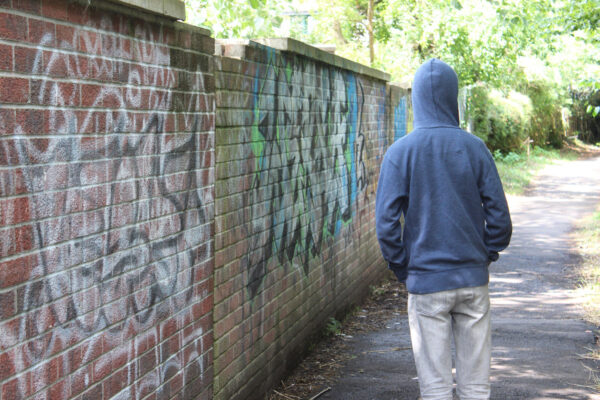In 2019, Adrian H. Huerta started a bold new project: Explore the educational pathways for former gang members and how they achieved college success. Starting with in-depth interviews with 37 former gang members who have completed associate to doctoral degrees, this work is helping to uncover the potential of a community — gang-affiliated youth — that is often deemed unworthy of investment even to consider college as a possibility.
Collectively, he learned how K-12 systems often discarded gang youth from schools through multiple practices that led to dropping- or push-out, and how some children as young as 13 years old knew that school was not meant for them due to aggressive tactics from school personnel. Eventually, they accept life on the streets with their gang as their fate.
Currently, Adrian and his team are in the middle of data analysis. Still, some troubling themes are emerging in the findings that show significant gaps in resources and training with this population for educators and other personnel in K-12. Addressing these gaps is urgent to prevent additional drop- or push-out of children involved in gangs. Schools are challenged with providing holistic social support services from mental and physical health, suicide, and violence prevention to pregnancy concerns, and this is even before we talk about recess, teaching or college admissions advising. Schools need help, and state leaders need to be more aggressive with funding public education. Although California is investing billions more into education, there is fear that there will not be enough, and how long additional revenues will last during economic prosperity as concerns about a recession linger.
However, the issue of children in gangs is not simply an education issue but spans criminal/legal, public health, and public policy. Cities engaging in gang suppression will not solve the problems of intentionally-neglected communities and underfunded schools.
Adrian is actively using his current research project on former gang members to inform practice efforts with a federal grant from the U.S. Department of Education. Along with partners Long Beach City College (LBCC) and Centro CHA, Adrian and the Pullias Center developed the LBCC Phoenix Scholars program — a holistic resource to help gang-associated youth and young adults (16 to 24 years old) to pursue a college degree, credential or certificate. The goal is to help them earn a livable wage with help from credible messengers.
Thus far, the LBCC Phoenix Scholars program has enrolled more than 45 students through the support of an outreach counselor, social work intern, success coach, workforce development specialist, and project director. In Fall 2022, the students peppered the staff over 1,400 times with questions about financial aid, basic needs, housing, childcare and more, which signals that trust is forming between the college students and staff members.
For many academics, bridging research-to-practice as a critical effort to help transform culture, practices, and institutions is a professional highlight. Adrian sees this work with LBCC and Centro CHA as a potential model for other community colleges to better engage gang-associated youth and slowly move away from suppression and convictions and move toward community building and college degrees. With funding for this project secured only through December 2024, Adrian and his colleagues at LBCC and Centro CHA are now actively searching for additional funds to help sustain this program to continue to uplift gang-impacted youth to see a better and bolder future.







